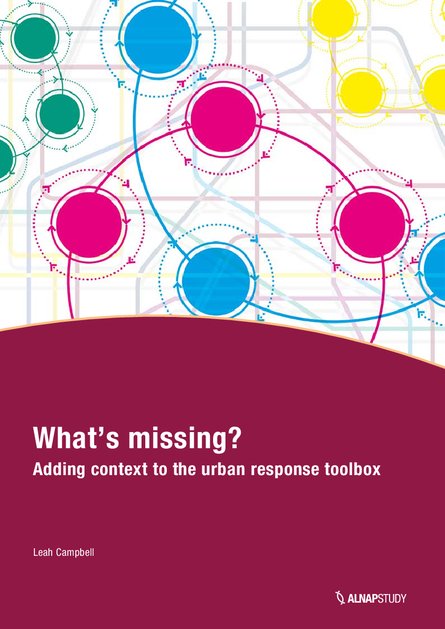
Recognition of the need for humanitarian response to be ‘context relevant’ has been increasing. It comes up in discussions on coordination, accountability, localisation, and effectiveness and is now broadly accepted as something humanitarian response should be striving towards. Despite this awareness, there is little clarity about what context relevance looks like or how to achieve it.
In order to explore whether ‘context tools’ can help improve humanitarians’ ability to think and act more effectively in urban environments, this paper asks the following questions:
• What is context?
• Do we need to understand it to respond more effectively to urban crises? If so, why?
• What are ‘tools to understand context’? How do these differ from one another, and from other sorts of analysis?
• How can humanitarians use these tools most effectively?
Resource collections
- Topics
- UN Habitat - Urban Response Collection
- Urban Response - Urban Crisis Preparedness and Risk Reduction
- Urban Response Collection - Community Engagement and Social Cohesion
- Urban Response Collection - Economic Recovery
- Urban Response Collection - Environment and Climate Change
- Urban Response Collection - Housing, Land and Property
- Urban Response Collection - Urban Crisis Response, Recovery and Reconstruction
- Urban Response Collection - Urban Resilience
